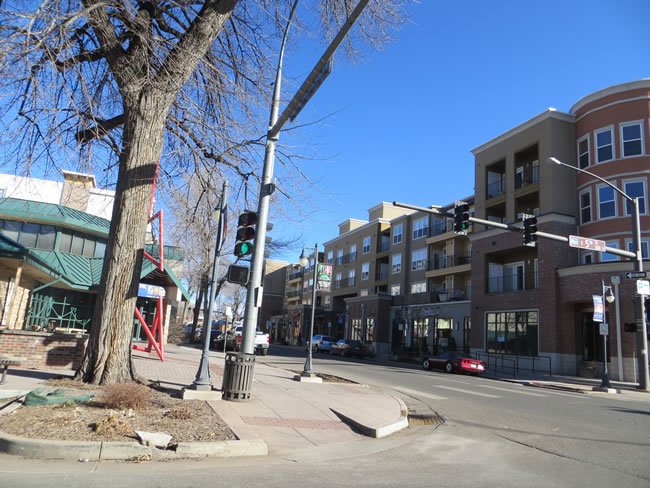
Denver historically was the leader in Colorado real estate. The tides have turned with the pandemic. Year to date, sales in Denver are up around 5%, while Jefferson county, a suburban county of Denver is up 9%. Furthermore, the appreciation in Summit county is over double Denver with the median home price increasing over 20%. What is causing these disparities? What does this mean for Denver county long term? Will Denver fall into decay as some have claimed?
Historically high correlation between Denver and the rest of the state
When Denver rose the rest of the state rose, we would see the effects throughout the state of Colorado. Historically as Denver property values went up property owners would buy second homes in Breckenridge, Vail, Steamboat, etc… The last 30 years you could pretty much bank on real estate throughout the state going up when Denver went up. The inverse was also true when property values struggled in Denver values also fell throughout most of the state which occurred during the last recession.
It appears the correlation is now broken as markets throughout Colorado are outperforming Denver. For example, suburban and exurban communities are doing better than the Denver metro and even areas on the western slope like Montrose are performing well.
Why is Denver under performing?
The pandemic has hit cities throughout the country causing a flight to suburbia and resort communities. There are five main drivers spurring this “flight” to alternative locations.
- Cities are expensive: with the pandemic people want/desire more space and they can get a much larger house in the suburbs for the same or less than they are paying now
- Businesses not open: with businesses closed and remote work the new norm, the ability to commute, once a key driver of where someone lives is removed
- High taxes: Cities notoriously have much higher taxes than their suburban counterparts. Denver county is considerably higher than Jefferson or Douglas counties
- No amenities: one of the biggest drivers of city living is convenience and various amenities like being able to catch a train to go to a concert or walking to go out to eat or the theater. These amenities are gone now
- Perception of risk (riots, etc…): Unfortunately, with amenities and businesses shuttered there is a perception of risk in many city locations. For example in Milwaukee homicides are up 96%
Will Denver fall into Decay?
There was an hour long documentary with the premise that Denver is set for a long term decline. No doubt there will be some substantial challenges for the city, but I don’t think the sky is falling in Denver for four reasons.
- Existing Businesses will return: many existing businesses will eventually return to their offices, I don’t think the work from home trend will last for everyone indefinitely
- Amenities will return: as businesses and residents return so will the amenities that once drove people to the urban locations.
- As more people, businesses, etc… return crime will likely decline. More people walking around in a vibrant downtown will reduce crime due to their sheer volumes
- New businesses will enter from the coasts with regional offices as employees migrate to less expensive areas. Although Denver is expensive, compared to LA or NY it is still quite the bargain. You will seem more companies migrate from extremely dense cities to less dense cities like Denver.
The caveat is that this transformation could take many years. It is not like you flick on a switch and all the sudden everyone sells their suburban houses and starts running back to Denver the next day.
Summary:
We are in an interesting time in real estate. It reminds me a little bit of the 80s where crime rose substantially in cities and there was an urban exodus. In the 90’s and 00’s cities came roaring back into vogue as the suburban migration reversed course. The pandemic has caused a rapid reversal from city living back to suburban or exurban locations. Fortunately, I’m not convinced this transition to suburban locations will be a repeat of the 80’s where there was a long term shift out of the city core, this pandemic cycle should be much shorter once the vaccine is distributed with people migrating slowly back into cities like Denver.
We are still lending as we fund in cash!
I need your help!
Don’t worry, I’m not asking you to wire money to your long-lost cousin that is going to give you a million dollars if you just send them your bank account! I do need your help though, please like and share our articles on linked in, twitter, facebook, and other social media. I would greatly appreciate it.
Written by Glen Weinberg, COO/ VP Fairview Commercial Lending. Glen has been published as an expert in hard money lending, real estate valuation, financing, and various other real estate topics in Bloomberg, Businessweek ,the Colorado Real Estate Journal, National Association of Realtors Magazine, The Real Deal real estate news, the CO Biz Magazine, The Denver Post, The Scotsman mortgage broker guide, Mortgage Professional America and various other national publications.
Fairview is the recognized leader in Colorado Hard Money and Colorado private lending focusing on residential investment properties and commercial properties both in Denver and throughout the state. We are the Colorado experts having closed thousands of loans throughout the state.
When you call you will speak directly to the decision makers and get an honest answer quickly. They are recognized in the industry as the leader in hard money lending with no upfront fees or any other games. Learn more about Hard Money Lending through our free Hard Money Guide. To get started on a loan all we need is our simple one page application (no upfront fees or other games)